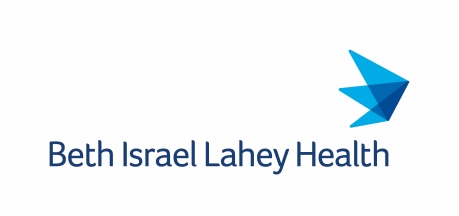Newswise — BOSTON – Beth Israel Deaconess Medical Center has established a named professorship to celebrate the career of an internationally acclaimed cardiologist who developed new ways to correct life-threatening problems in the electrical system of the human heart.
With a reception at Harvard Medical School, dinner and symposium, BIDMC launched the Shlomo Ben-Haim, MD, Professorship in Medicine in the Field of Cardiac Electrophysiology in Honor of Mark E. Josephson, MD. Ultimately, this Harvard Medical School chair will bear both the Ben-Haim and Josephson names in tribute to two exceptional leaders in cardiovascular innovation. Josephson is the current chief of the Division of Cardiovascular Medicine within the CardioVascular Institute and director of the Harvard-Thorndike Arrhythmia Institute at Beth Israel Deaconess Medical Center. Ben-Haim—a renowned Israeli biotechnology entrepreneur—is the namesake and lead donor with a multi-million philanthropic gift.
In addition, several patients, colleagues and friends helped endow the chair as a tribute to Josephson’s long career as a pioneer in cardiac electrophysiology.
“Mark is an extraordinary investigator, clinician and educator who has truly transformed this field, and I cannot think of anyone more deserving of this wonderful recognition,” said Kevin Tabb, MD, President and CEO of BIDMC, at the reception. “He has many remarkable accomplishments, including establishing the Harvard-Thorndike Arrhythmia Institute at BIDMC in 1992.”
Ben-Haim said he gave his gift “to recognize Mark’s seminal work in electrophysiology and for being my teacher and my constant challenger, and to make sure his past contributions to electrophysiology will be sustained. I have been the beneficiary of his remarkable humanity, honesty and support for decades and so my gift closes an important loop.”
“This professorship will support the director of the Harvard-Thorndike Arrhythmia Institute at BIDMC to ensure the continuation of the Institute’s mission and leadership in the field of cardiac electrophysiology,” Josephson said. “I’m grateful to all the people who contributed toward my research and this chair, in particular Shlomo Ben-Haim, whose generous gift has in large part made this possible.”
The Harvard-Thorndike Arrhythmia Institute—the first of its kind in the nation—is a world leader in state-of-the-art clinical care and groundbreaking research into all kinds of arrhythmias. The future incumbent of the newly established professorship will direct the Institute.
Pioneering Doctor, Researcher, EducatorDuring his 40-plus-year career, Josephson has driven the development of many surgical, ablative and implantable cardiac devices to treat arrhythmias.
He was the first to do systematic programmed stimulation of the heart to treat ventricular tachycardia, a potentially life-threatening condition that causes irregular heartbeats. He was the first to develop heart- mapping techniques that are the basis of catheter ablation, a procedure that is used to treat a wide variety of arrhythmias. Using these tools, he uncovered the pathophysiology of lethal arrhythmias associated with heart attack. He worked with surgical colleagues to develop mapping-guided surgery to cure ventricular tachycardia, which is still the most effective treatment for that disorder. The author of more than 450 peer-reviewed articles in electrophysiology, Josephson wrote Clinical Cardiac Electrophysiology Techniques and Interpretations, the definitive text on cardiac electrophsyiology.
Josephson’s impact on the field of electrophysiology includes mentoring and training over 250 fellows who are poised to continue his legacy of innovation. A number of them participated in the festivities to honor their esteemed mentor.
Academic Children and Grandchildren“I have no doubt that if you asked Mark what his proudest accomplishment is that he would say without hesitation it is his role in educating and training the next generation of pioneering physician-researchers in cardiac electrophysiology,” said Tabb. “I have often heard him refer to his fellows and trainees as his ‘children’ and ‘grandchildren’—a sentiment that reflects the time, support and resources he has dedicated to ensure that they, too, move forward to develop their own career paths and pursue their own innovative research.”
Josephson explained that Ben-Haim is one of his “academic grandchildren,” having been trained by one of Josephson’s “academic children,” a former electrophysiology fellow. Ben-Haim later came to Beth Israel Deaconess to receive further training directly from Josephson. They remained friends and worked together on several projects. Among Ben-Haim’s many achievements is the development of CARTO, a sophisticated navigation system that allows the cardiologist performing an ablation to visualize in real time the position and orientation of a specialized catheter (tube) within the patient’s heart.
Josephson remains the Herman Dana Professor of Medicine at Harvard Medical School.
About the CardioVascular Institute at BIDMC The CardioVascular Institute at Beth Israel Deaconess Medical Center combines cardiology, cardiac surgery and vascular surgery in a structure designed to facilitate collaboration across disciplines. The CVI delivers outstanding outcomes, easy access, and better service, earning BIDMC recognition from U.S. News & World Report as one of the best 100 hospitals or a distinguished hospital in heart care and surgery since 2006. Community-based cardiologists and vascular surgeons at convenient offices in Massachusetts and New Hampshire provide a wide range of services and, when advanced care is needed, refer patients to Beth Israel Deaconess Medical Center in Boston. For more information, visit www.bidmc.harvard.edu/CVI.
